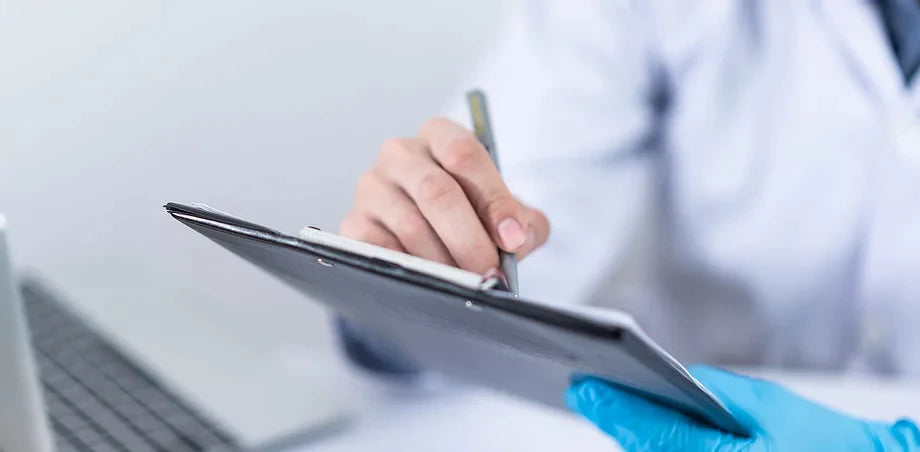What is the SIBO Test?
Small Intestinal Bacterial Overgrowth (SIBO) is a condition that results in excessive bloating and gas, especially after meals, as well as other IBS symptoms. Genova’s non-invasive SIBO breath test can detect the gases that are produced by the bacteria. Treatment often involves eliminating the overgrowth with antibiotics, herbal supplements, and/or a specialized diet. Genova offers a 2 or 3-hour SIBO assessment. The 3-hour SIBO profile provides insight into gas levels over a longer period of time, and is recommended for patients with slower gastrointestinal transit or constipation.
Genova’s SIBO Profiles are non-invasive breath tests which capture exhaled hydrogen (H₂) and methane (CH₄) gases, following patient ingestion of a lactulose solution, to evaluate bacterial overgrowth of the small intestine (SIBO). Expected values for both H₂ and CH₄ are based on the 2017 North American breath testing consensus group recommendations.
What advantage does the SIBO breath test offer compared to other diagnostics?
While aspiration of small bowel fluid (followed by culture and bacterial count) is considered to be the current gold standard for diagnosis of SIBO, it is not routinely performed because it requires a complex, invasive technique, and is costly. As a result, experts suggest breath testing for the diagnosis of small intestinal bacterial overgrowth.
When should testing for SIBO be considered?
Symptoms of SIBO are non-specific, encompassing abdominal pain/distention, diarrhea, and flatulence. Conditions commonly associated with SIBO include:
-
- Irritable Bowel Syndrome (IBS)
- Irritable Bowel Disease (IBD)
- Celiac Disease
- Diabetes
-
- Fibromyalgia
- Rosacea
- Parkinson's Disease
- Obesity
Risk factors for development of SIBO include structural/anatomic issues, motility disorders, organ system dysfunction, elderly age and various medications (recurrent antibiotics, PPIs) that alter the gut microflora populations.Symptomatic patients with any underlying conditions or risk factors warrant assessment for SIBO.
Markers in the NutrEval Profile
H2 - Hydrogen | CH4 - Methane
Prices
$400* cash price (3-hour test)
*Price includes 60-min nutrition interpretation consultation

Sample Report
Collection Instructions
Steps
2-4 weeks before the test
- Wait 4 weeks from your last dose of antibiotics, colonoscopy, or barium enema before beginning the test.
- If you are using antifungals, Pepto-Bismol, or herbal/natural antimicrobial products, wait at least 2-4 weeks from your last dose before beginning the test.
7 days before the test
Avoid the use of laxatives, stool softeners and/or stool bulking agents (For collections based in the United States, examples include Ex-Lax, Colace, Metamucil®, Fibercon®), as well as the use of antacids containing aluminum or magnesium hydroxide (For collections based in the United States, examples include Maalox liquid, Equate, Milk of Magnesia, Rolaids, Mylanta).
24 hours before the test
- You must limit your diet. Here are foods that you CAN eat before you start your 12 hour fast: Baked or broiled chicken, fish or turkey (salt and pepper only), white bread (only), plain steamed white rice, eggs, clear chicken or beef broth (no vegetable pieces).
- Vegetarians may have tofu with salt and pepper.
- Allowed beverages include water, plain coffee, and tea (no sugar/artificial sweeteners or cream).
- Do not take probiotics.
12 hours before
- You should fast for 12 hours prior to the first breath collection. This means do not eat or drink anything other than water during the specified time frame.
- Do not take non-essential medications or supplements until the test is completed, unless your physician has advised you otherwise.
- Do not chew gum, eat candy, or use mouthwash until the test is completed.
1 hour before
- No smoking, including second-hand smoke, for at least 1 hour before or at any time during the breath test.
- No sleeping or vigorous exercise for at least 1 hour before or at any time during the breath test (this includes waiting at least 1 hour after waking for the day).
- Do not use toothpaste.


